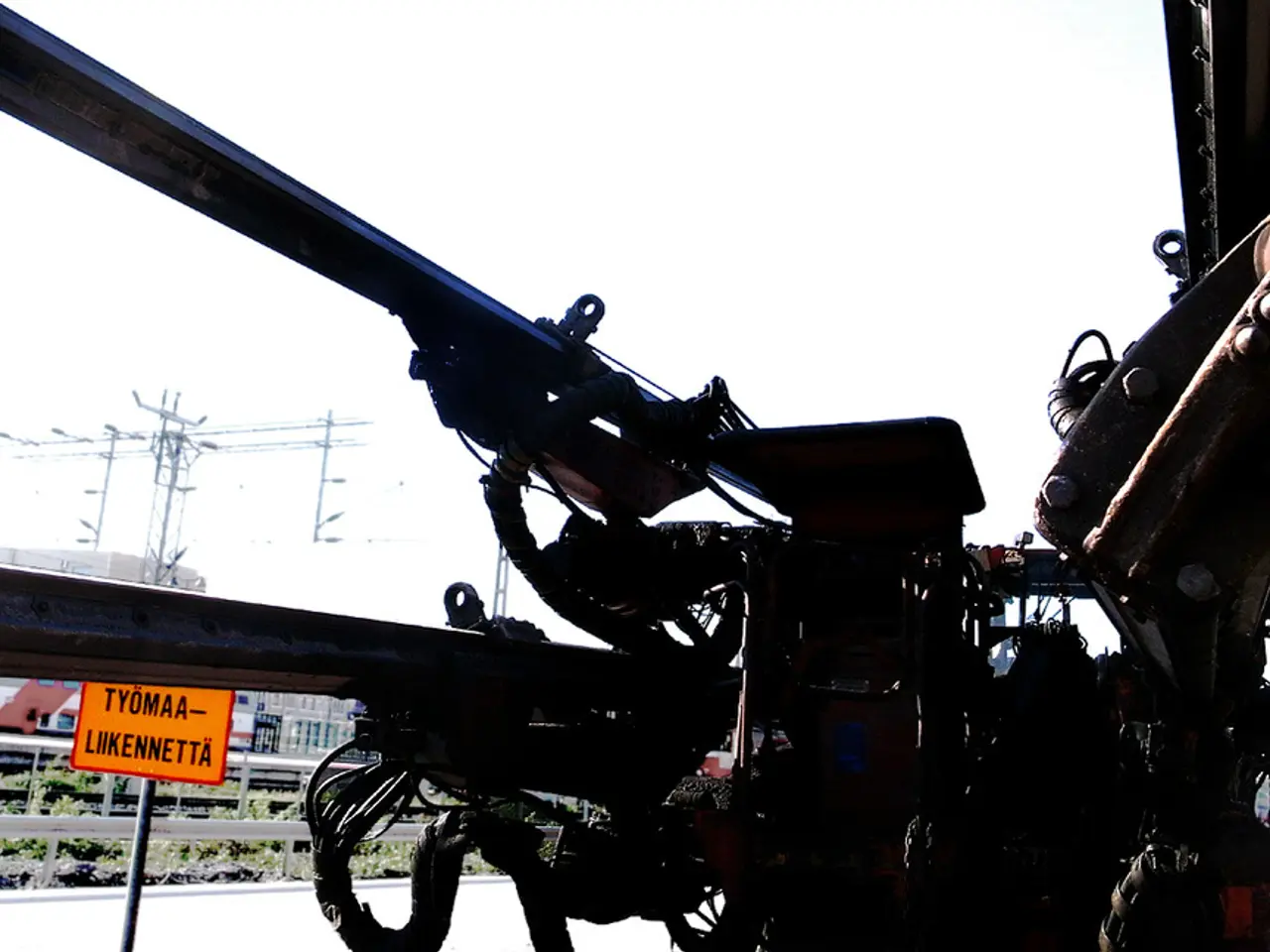Industries Embracing Thermal Drone Technology in 2025
In the year 2025, thermal drone technology has become a frontline asset across various industries, offering a host of benefits that range from improved safety to operational cost savings.
Agriculture Leads the Way
The agricultural sector stands out as the leading industry benefiting from thermal drone technology. Thermal drones are extensively used for crop health monitoring, providing early problem detection, reduced chemical use, and more accurate resource management. By detecting crop stress due to drought, nutrient deficiency, or compaction, thermal drones help move the industry towards sustainability and intelligent farming.
Moreover, thermal drones are instrumental in optimizing water management by identifying irrigation issues, enhancing greenhouse and controlled environment agriculture management by monitoring airflow, temperature, and pest zones.
Logistics and Supply Chain Follow Close Behind
The logistics and supply chain sector is another major beneficiary of thermal drone technology. Thermal drones contribute to warehouse surveillance by monitoring large distribution centers for security breaches, theft, and operational inefficiencies. While not solely thermal imaging, drones overall aid in last-mile delivery and inventory management in retail and e-commerce.
Public Safety and Environmental Monitoring
In the realm of public safety and environmental monitoring, thermal drones play a crucial role. They support search and rescue operations and wildlife conservation by detecting heat signatures. Their applications extend to real-time ecological insights in forestry, conservation, and environmental science.
Predictive Maintenance and Regulatory Compliance
Predictive maintenance is central to minimizing downtime and preserving equipment lifespan in industries. Thermal drones provide a fast, non-intrusive way to scan critical systems, helping manufacturers optimize maintenance schedules, reduce emergency repairs, and keep production running smoothly.
Regulatory compliance is also improved with thermal inspections, offering traceable, timestamped data to support reports and audits in industries with strict safety and environmental standards.
Improved Safety and Operational Cost Savings
Thermal drones are essential tools for first responders, offering critical situational awareness in dangerous, low-visibility environments. They help developers stay compliant with building codes and energy efficiency standards by providing detailed thermal scans during key project milestones.
Operational cost savings are achieved through reduced labor hours, minimizing equipment damage, and avoiding system failures with thermal drone technology. Thermal drones are becoming standard tools in manufacturing, warehouses, and industrial plants for detecting overheating motors, conveyor systems, bearings, and electrical panels.
The Future of Thermal Drone Technology
The adoption of thermal drone technology is accelerating due to improved hardware, smarter software, and industry demand for faster, safer inspections. AI-powered analytics and automated flight planning are making it easier to collect, process, and act on thermal data.
As automation and smart monitoring expand across industries, thermal drones are becoming a core part of the asset management toolkit. They offer improved safety by reducing the need for manual inspections in dangerous or hard-to-reach environments, such as high-voltage substations or active fire zones.
In conclusion, thermal drone technology is transforming multiple industries in 2025, offering benefits that range from improved safety and operational cost savings to regulatory compliance and predictive maintenance. The future of this technology looks promising, with continued advancements in AI, hardware, and software expected to further expand its usability across various sectors.
[1] Agriculture’s Adoption of Thermal Drones [2] Logistics and Supply Chain Applications of Thermal Drones [3] Public Safety and Environmental Monitoring with Thermal Drones [4] Construction and Infrastructure Inspection with Drones [5] Thermal Drones in the Wildlife Conservation Sector
- Manufacturing Sector Embraces Thermal Drones for Improved Safety
- Thermal Drones in Energy Sector for High-voltage Substation Inspections
- Interior-design Industry explores thermal drones for efficient space planning and energy-efficient building design.
- Entrepreneurship in the cooking space leverages thermal drones for testing food temperatures and optimizing energy usage in commercial kitchens.
- Transportation and automotive spheres use thermal drones for vehicle inspections, fuel efficiency analyses, and traffic management.
- Leadership in Thermal Drone Technology Building Future Strategies
- Diversity-and-inclusion initiatives recognize the potential of thermal drones to create equitable access to opportunities within industries.
- Cybersecurity considerations address data privacy and security concerns related to drone technology.
- Lifestyle enhancements With Thermal Drones: Landscaping and outdoor-living improvements for homeowners through better plant health monitoring and optimization.
- Fashion-and-beauty industry utilizes thermal imaging for quality control in textile production, color matching, and energy efficiency analysis.
- Food-and-drink sector relies on thermal drones to monitor refrigeration units, maintain food safety, and optimize energy usage.
- Retail and dining establishments implement thermal drones for inventory management, customer behavior analysis, and energy efficiency enhancement.
- New Family-dynamics with Savvy Thermal Drone Skills
- Automotive sector innovates with thermal drones for autonomous vehicles, road traffic monitoring, and vehicle performance diagnostics.
- Small-businesses adopt thermal drones for quicker, cost-effective inspections, competitive edge, and improved management of resources.
- Investing in companies that harness thermal drone technology brings opportunities for lucrative returns in various industries.
- Wealth-management firms incorporate thermal drone technology into their asset management strategies, recommending related investments to clients.
- Home-and-garden enthusiasts utilize thermal drones for landscape design, irrigation management, and home-improvement projects.
- Baking hobbyists employ thermal drones to monitor oven temperatures, ensuring consistent results in their creations.
- Beverages manufacturers use thermal drones to improve production monitoring, quality control, and energy efficiency.
- Dating platforms may leverage thermal drones in initial meetings for safety purposes, health risk assessments, and more accurate temperature readings.
- Financial services providers enable budgeting and debt management services for clients through the use of thermal drone technology.
- Businesses invest in budget-friendly, resourceful gadgets that incorporate smart thermal imaging, including home appliances and energy-efficient devices.
- Artificial intelligence revolutionizes thermal drone technology by automating data processing, predictive analytics, and real-time health monitoring in diverse industries.




